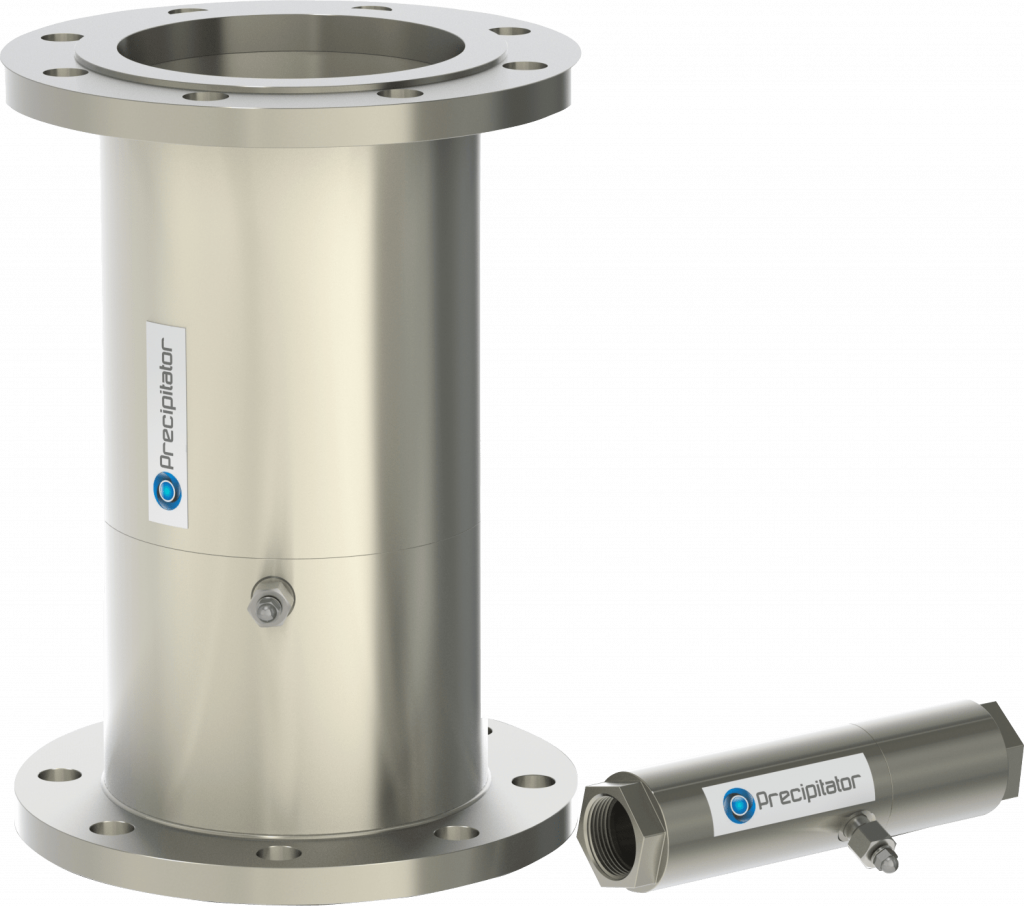Nanode Precipitator
Physical Water Treatment Technology
Mengatasi kerak dan korosi tanpa bahan kimia, elektrik dan maintenance

Reason to choose Nanode Precipitator
- No. 1 for ion release
- In-line device
- 1/2” – DN200 sizes
- Improves heat transfer
- Reduces corrosion
- Inhibits limescale
- Proven method improved
- Hemat energi
- Bebas kimia
- Non electrical
- Tanpa magnet
- Zero operating cost dan down time
How Does Nanode Precipitator Work?
Nanode Precipitator devices have a dual purpose to inhibit and remove the formation of scale-forming minerals and to control corrosion.
Galvanic corrosion is an electrochemical process of which one metal corrodes preferentially to another when both metals are in metal to metal contact in the presence of water that, in terms of a battery, the water is an electrolyte that contains hydrogen ions.
The zinc anode in the Nanode device is the sacrificial link in a system of various metals therefore becomes the focus and sacrifice for any corrosion within a system that may be taking place with a process known as REDOX. This is an acromen for reduction and oxidation that explains the giving and receiving of ions between different metals.
One innovative aspect is the anode that has been designed to prolong its electrochemical lifespan by providing a dry electrical pathway whilst simultaneously releasing its zinc ions into the flow of water. Previously anodes would oxidize to such an extent that they would become insulated and prematurely cease to work.
Another innovative aspect is the design of PTFE (TeflonÒ) components that have a powerful electrostatic effect to strip the light-weight hydrogen bond from the temporary hardness ions, Ca (HCO3)2, Mg (HCO3)2. This reaction occurs at the interface barrier that immediately commences precipitation of minuscule crystalline particles. Small channels through the PTFE increase the velocity of the flow of water to keep the wetted surface clear for continual reactions.
The emerging particles latch onto the zinc ions that act as sites for rapid and continual growth within the flow. The re-conditioned “bi-carbonate hardness” is prevented from creating hard scale deposits. It also gradually removes existing deposits due to being less-saturated, therefore, relatively more acidic.
The Baylis Curve diagram, as shown, indicates a spectrum of water conditions that range from “hard” to “soft” water. The “hard” water contains a greater volume of ionic calcium and magnesium than the “soft” water that is comparatively more aggressive as a solvent. The cross-over region from soft to hard is the condition where corrosion may be active under a thin layer of biofilm and limescale. The Nanode Precipitator reduces or eliminates these conditions.


